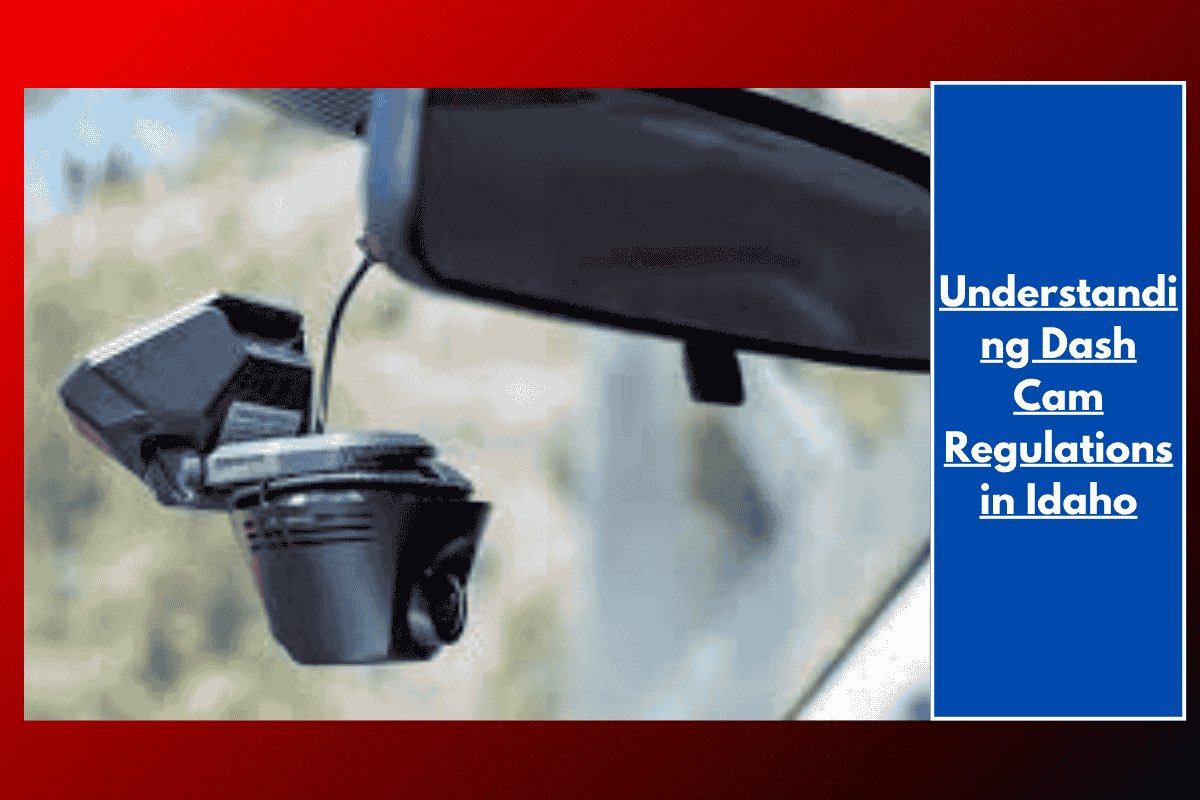Dash cams have become an essential tool for many drivers, offering a way to capture road events, accidents, or even interactions with law enforcement. However, before you install a dash cam in your vehicle, it’s important to know the legal regulations surrounding their use, especially in Idaho. Like many states, Idaho has specific rules about how and when you can use a dash cam while driving. Understanding these laws will help ensure you’re complying with the rules and protecting your privacy as well.
Are Dash Cams Legal in Idaho?
Yes, dash cams are legal in Idaho. You are allowed to install a dash cam in your vehicle, whether for personal security, capturing accidents, or recording your driving for insurance purposes. Idaho does not have any specific laws that prohibit the use of dash cams, which makes it relatively straightforward to use one as long as you follow general legal guidelines.
Where Can You Mount Your Dash Cam?
While it’s legal to use a dash cam in Idaho, there are rules regarding where you can mount it. The key regulation is that the device should not obstruct the driver’s view or interfere with driving. According to Idaho law, the windshield and the driver’s line of sight must remain clear, and dash cams cannot be mounted in a way that limits your ability to see the road clearly.
The best practice is to mount the dash cam on the rearview mirror or at the top corner of the windshield, away from your direct line of sight. This ensures that you can still see the road clearly while having the camera record what’s happening.
Recording Audio with a Dash Cam in Idaho
In Idaho, you can legally record video using a dash cam, but the laws become a bit more complicated when it comes to recording audio. Idaho is a one-party consent state when it comes to audio recording. This means that if you’re recording a conversation, only one person involved in the conversation needs to consent to the recording.
However, if you are recording a conversation with someone else in the vehicle or with a law enforcement officer, it’s important to ensure that you either have their consent or that you’re recording in a public space where the expectation of privacy is minimal. While law enforcement generally does not have an expectation of privacy when interacting with the public in public spaces, it’s always a good idea to make sure you’re not violating any privacy laws.
Dash Cams and Law Enforcement
When it comes to interactions with police, Idaho does not have any laws that specifically regulate the use of dash cams during stops. You are legally allowed to record police encounters in public, and many drivers use dash cams to ensure both their protection and the protection of law enforcement.
However, it’s important to note that if you’re pulled over by the police, you should be respectful and mindful of how you handle your dash cam. If the police ask you to stop recording during a traffic stop, you may be required to comply. In general, though, dash cams that record police interactions are not illegal, as long as the recording is done in a public setting where there is no reasonable expectation of privacy.
Using Dash Cam Footage in Idaho
Dash cam footage can be used for various purposes in Idaho, including evidence in court, insurance claims, or even to dispute traffic violations. If you are involved in a car accident or a situation with law enforcement, the footage can be vital in proving your case. As long as the footage is legally obtained, it can be submitted to authorities or used in court.
If the footage includes private conversations or was recorded without consent in a private setting, you could run into issues with privacy laws. However, public recordings, especially those made on public roads or in public spaces, are generally considered fair use.
Dash cams are a legal and useful tool in Idaho, provided they are mounted in a way that does not obstruct your view while driving. You are allowed to record video, and audio recording is allowed under the state’s one-party consent laws. While interacting with law enforcement or other individuals, make sure you respect privacy laws and ensure that you are recording in a public space or with consent.
By following these guidelines, you can use a dash cam to your advantage, capturing useful footage that could protect you in the event of an accident or dispute. Always be aware of the rules around dash cams in Idaho to make sure you’re staying within the law.
SOURCE
[1] https://www.ddpai.com/blog/dash-cam-laws/
[2] https://www.expertmarket.com/dash-cams/dash-cam-laws-by-state
[3] https://worldpopulationreview.com/state-rankings/dash-cam-laws-by-state
[4] https://www.enjuris.com/blog/resources/dash-cam-laws-by-state/
[5] https://matrackinc.com/dash-cam-laws-by-states/














